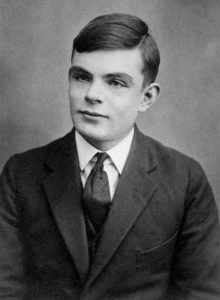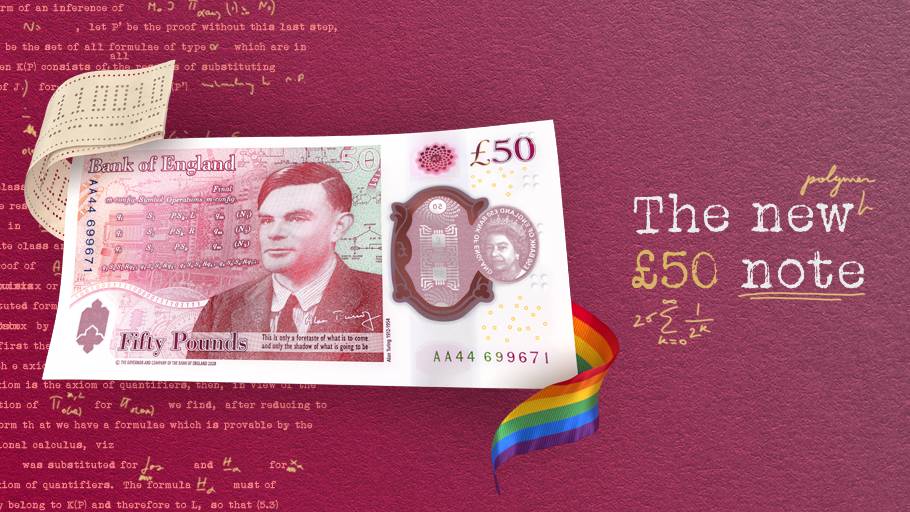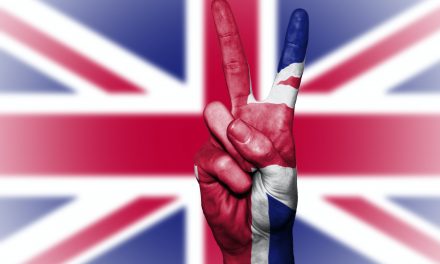The Bank of England introduces the new £50 note next month (June 2021) and on it will be the face of one of history’s greatest mathematical minds. But the nation that owed genius Alan Turing so much, treated him terribly.
Alan Turing grew up in East Sussex and is now famous for breaking the Nazi enigma code. It meant the Allies could decipher all German coded messages. Historians say this shortened the second world war by more than two years and saved about 14 million lives.
Unrecognised
But his work was top secret so its significance remained unacknowledged for 50 years. Instead, after the war he was prosecuted for his homosexuality. He chose chemical castration over jail. In 1954, at the age of just 41, he tragically poisoned himself with cyanide and died.
Turing spent most of his early childhood years at school and home in Hastings, St Leonards and Frant, near Crowborough. During his childhood Turing’s parents travelled between Hastings and India, leaving their two sons to stay with a retired Army couple. In Hastings, Turing stayed at Baston Lodge, Upper Maze Hill, St Leonards-on-Sea. A blue plaque was unveiled on the building on 23 June 2012, the centenary of his birth.

Turing’s parents enrolled him at St Michael’s, a day school in 20 Charles Road, St Leonards-on-Sea, at the age of six. The headmistress recognised his talent early on, as did many of his subsequent teachers. Between 1922 and 1926 he was educated at Hazelhurst Preparatory School in Frant.
Father of computing
These were the educational foundations of a man whose genius would play a pivotal role not only in securing victory in the second world war. He was also instrumental in shaping the modern computerised world.
After the war, he became a leading light in the development of computers and computing theory. He created the Automated Computing Engine – the model of a general-purpose computer. And he is also widely considered to be the father of artificial intelligence by considering the question of whether machines could think.
Untimely death
But despite these accomplishments, there was never any proper recognition for Turing during his lifetime, due to his homosexuality. From a 21st Century perspective this series of events seems unthinkable and shameful.
In 2009 Prime Minister Gordon Brown made an official apology on behalf of the British government for “the appalling way he was treated”. The Queen granted Turing a posthumous pardon in 2013.
Turing now finally receives the place in history he deserves. But how very sad he didn’t live to experience it? The £50 note might not be the most frequent piece of UK currency to visit our wallets and purses. It is, though, an appropriate tribute to a man to whom we owe so very much.
There’s more information about this remarkable man on the Imperial War Museum website. https://www.iwm.org.uk/history/how-alan-turing-cracked-the-enigma-code




